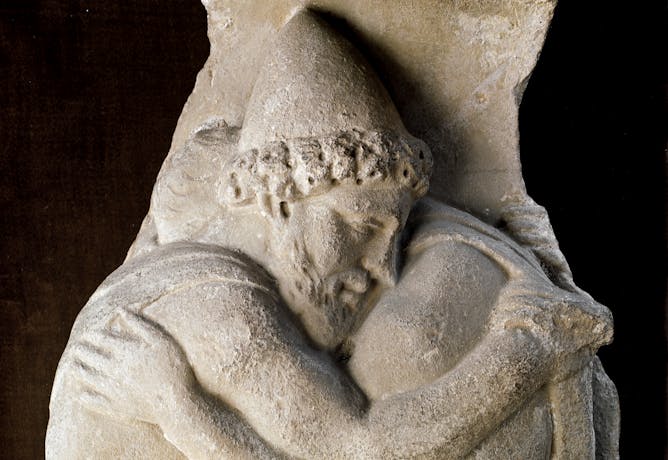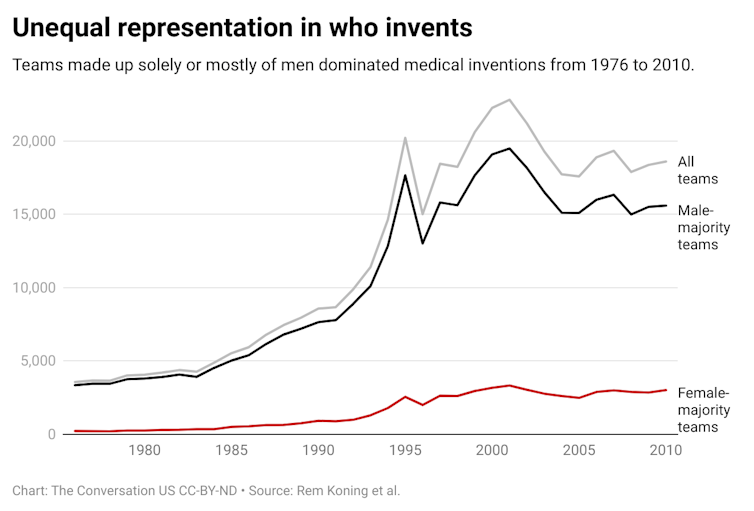|
|
|
|
My father was my hero. During our summer holidays back in India, he would drive us to the town of Mussoorie, in the foothills of the Himalayas. As we passed lush, green forests, he would stop to show my siblings and me the dancing peacocks, kindling a love for nature and adventure. He also modeled grit – something that has helped me deal with my own tough times.
Father’s Day this Sunday will bring different emotions and memories for many of us. Joel Christensen, a scholar of ancient Greek poetry at Brandeis University, writes about how losing his father and welcoming two children into the world within a two-year period changed the way he read and taught Homer’s classic, “The Odyssey.”
Greek myths teach us that “we are shaped by the people who recognize us and the stories we share,” writes Christensen. He feared the loss of his father meant the end of their shared stories. But through children, these stories can find a new home and make an “impossible return less painful” – something that will bring comfort to many, including me, this Sunday.
Also today:
|
Kalpana Jain
Senior Religion + Ethics Editor
|

|
|

Odysseus reuniting with his father, Laertes.
Leemage/Universal Images Group via Getty Images
Joel Christensen, Brandeis University
On Father's Day, a scholar of ancient Greek poetry explains how he came to understand the father-son relationship and his journey of loss and yearning through reading the epics.
|
Politics + Society
|
-
Chris Lamb, IUPUI
Biden’s relationship with his father contrasts with perhaps every president in the last four decades, who either had absent or distant fathers or abusive or alcoholic fathers or stepfathers.
-
Nader Habibi, Brandeis University
Ebrahim Raisi became the favorite to win Iran's June 18 presidential election after his top opponents were disqualified.
-
Sheena L. Gilbert, University of Nebraska Omaha; Emily Wright, University of Nebraska Omaha; Tara N. Richards, University of Nebraska Omaha
With the reauthorization of the nation's landmark anti-domestic violence law, there's the chance that more cases of violence against Indigenous women will be prosecuted.
|
|
Arts + Culture
|
-
Eurie Dahn, The College of Saint Rose
For over a century, Black activists have used punctuation marks to subtly challenge official accounts of events.
|
|
Environment + Energy
|
-
Hessam AzariJafari, Massachusetts Institute of Technology; Randolph E. Kirchain, Massachusetts Institute of Technology
Here’s how reflective pavement works and what cities need to think about.
|
|
Science + Technology
|
-
Rem Koning, Harvard Business School
Boosting the number of female inventors isn't just a matter of fairness. Inventions by men are more likely to ignore women's needs.
|
|
Education
|
-
George Justice, Arizona State University
Academic tenure – a system of job protections for university professors – came about in the early 20th century. Will it survive in the 21st century? A scholar weighs in.
|
|
Podcast
|
-
Gemma Ware, The Conversation; Daniel Merino, The Conversation
Plus, what the study of 700-year old garbage is revealing about who lived in Islamic Andalusia. Listen to episode 20 of The Conversation Weekly.
|
|
From our international editions
|
-
Gavin Evans, Birkbeck, University of London
Kaunda will be remembered as a giant of 20th century African nationalism -- a leader who gave refuge to revolutionary movements, a relatively benign autocrat and an international diplomat.
-
Robert Lawson, Birmingham City University
During the pandemic, researchers have treated Twitter as a sprawling and evolving historical document.
-
Erica Pimentel, Queen's University, Ontario
The post-pandemic return to work will provide an opportunity for employers and employees to reconsider relationships. Here’s how organizations can build morale and stop valued employees from leaving.
Today’s graphic

|
|
| |
| |
| |
| |

|
| |
| |
| |
| |
| |
| |
| |
| |
|
|
|
|
|
|
|